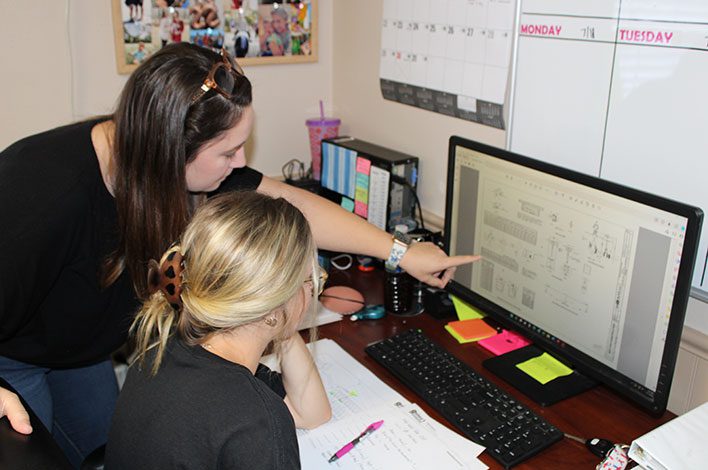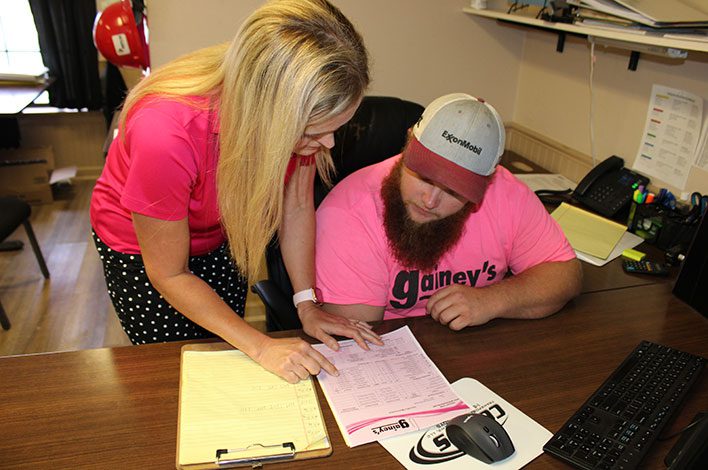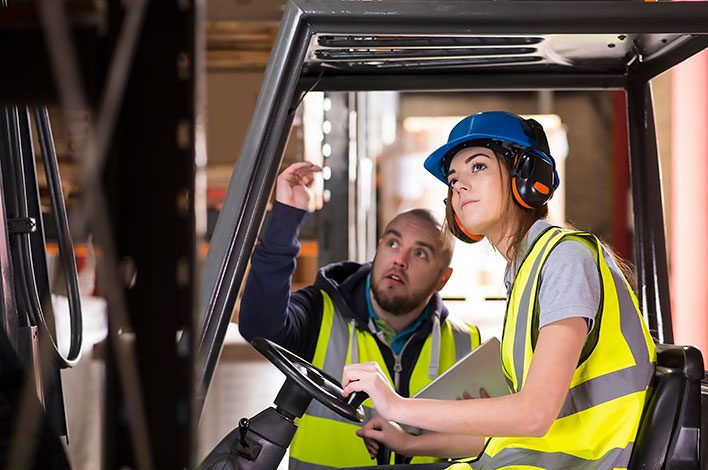Like manufacturers in many other industries, precasters are well-versed in the current challenges of attracting and retaining employees. These workforce challenges are amplified during the summer months, when employees are more likely to miss time on the plant floor for family vacations.
However, for precasters willing to take on temporary help from young minds with an interest in the industry, summer can be full of opportunity.
Internships and summer help from high school students can bridge the gaps in a plant’s workforce while giving students valuable experience in the numerous roles within the industry.
Lisa Roache, CEO of Gainey’s, encourages interns at the Holden, La., plant to cross train and grow in different areas during their terms.
“They can try a position for two weeks, and then they might love it,” Lisa Roache said. “We just had someone from our contracting crew that wanted to try project management. And someone in project management wanted to try this production supervisor position that was available. They both loved the switch.”
With roles available in everything from accounting and drafting to quality control and web design, precast plants are workplaces designed to welcome interns with a cadre of interests. But it’s not without its challenges. Properly balancing work with their academics and social lives can pose issues if students don’t take the position seriously.
“We are constantly giving the message that school is your most important job right now – school needs to come first,” Lisa Roache said. “And there’s a flexibility that comes with an internship that, if you were a full-time employee, you would not be allowed, but school needs to come first. When you’re here, we want you to be all in. We want you to be productive.”
Precasters must also be cognizant that internships and summer help by their nature mean turnover. As students return to classes or need a lighter workload when school begins, new interns will need to be trained or employees hired to replace them. That shouldn’t scare off companies from initiating an internship program.
“Offering internships, whether for positions on the plant floor or in your front office, can build a pipeline of industry-savvy employees, engineers and specifiers that ultimately bring growth back to your business,” said Christina Trexler, NCPA Vice President of Workforce Innovations. “Young people also can bring a different perspective, helping you see opportunities for innovation you might never have considered.”

SUMMER IS THE SEASON
Internships can be offered at any point in the year, but summer likely is the best time to offer openings. A 2019 report by the Pew Research Center, based on Bureau of Labor Statistics data, found that 15- to 17-year-olds spent roughly an hour a day on homework on top of an average of seven hours of coursework. That makes summer the best opportunity for them to build experience and earn some extra pocket change.
Much of the same applies to college students. Course schedules may allow for more flexible work hours, but college students will have much more luck dedicating time to internships in the summer.
Precast plants’ variable roles make them fertile ground for the collegiate ranks, encouraging longer-term opportunities for those who can handle it.
“I just did a Career Fair last Wednesday at the local college,” Lisa Roache said. “And there were a lot of freshmen and sophomores that were coming through in industrial technology, and I kept the consistent message I had all day long was, listen, don’t worry about what you’re interning in. Just come in and intern. You’re going to learn a skill that’s going to make you so much more valuable.”

FINDING INTERNS
Plants who are looking to supplement their workforce with interns do well when they engage with the community and encourage students to take an interest in their work. Giving students a more tangible experience with the company, like a plant tour, in-class presentation or project sponsorship, before asking for an internship commitment can reap rewards.
Greg Roache, president of Gainey’s, has taken it into his own hands to not only be a part of recruitment but the teaching process for schools and students who want to learn about what Gainey’s does.
“We’re working very diligently with a local college that offers a degree in industrial technology,” Greg Roache said. “And we wanted to put in precast-specific work with them. They said, ‘I can’t add any more classes, because we don’t have enough students.’ I said, ‘All right, let’s help you build your program.’ So, I took it upon myself to go around to all the local high schools, taught on Career Day – and that has an impact.”
Gainey’s also employs a mentorship program. Interns and their active employee mentor track their progress and make regular check-ins with a supervisor that ensures the intern is having a positive experience.
“I just sit down and talk to them to say, ‘Hey, what is it you’re enjoying?’” Lisa Roache said. “What can we do better? Where are you struggling? It’s not even a 15-minute talk, but it opens that door where they can talk to me or say something to their mentor.”
For plants that aren’t quite sure where to start, NPCA is in the process of building a best practices guide that will provide direction for recruiting, mentoring and retaining interns.
“We want members to have a roadmap for engaging the next generation of employees and offering valuable experiences in a variety of industry roles,” Trexler said. “Stay tuned for help from your association on this front.”
Ultimately, offering internships can’t just be about adding to the workforce. There’s an element of taking on the responsibility of guiding a young person’s future. The insights students can gain at a precast plant are undeniable.
“No matter what you’re coming out of here a winner,” Greg Roache said. “If you put the effort in, you’re going to learn a lot about what you may want to do – and definitely what you don’t want to do. We want this to be a life-changing experience for you. For the better or the worse, right?”
